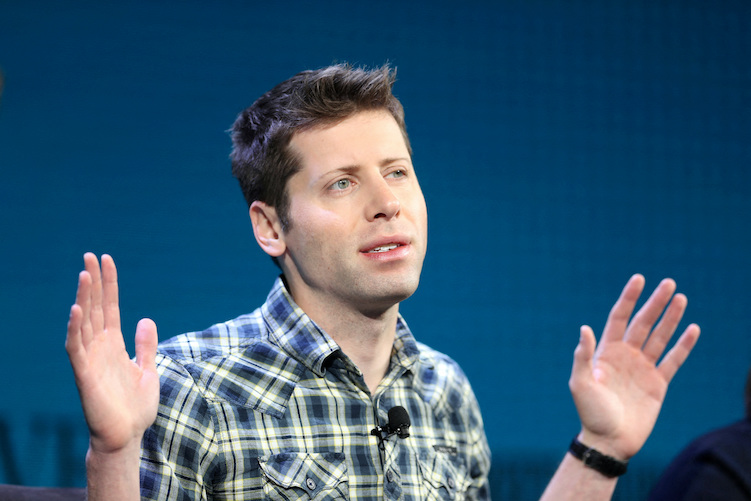Investors in OpenAI are consulting legal advisers to weigh their options, including potentially suing the ChatGPT-maker’s board, in the aftermath of Sam Altman being fired as CEO.
Investors are worried about losing the hundreds of millions of dollars they have ploughed into the artificial intelligence (AI) firm, a crown jewel in some of their portfolios until last Friday.
Now, the hottest startup in the rapidly growing generative AI sector is faced with potential collapse as a majority of the company’s employees threaten to quit over Altman’s firing.
Also on AF: Turmoil at OpenAI After Board Coup, Sam Altman Heads to Microsoft
By Monday, most of OpenAI’s more than 700 employees had signed an open letter threatening to leave and join Microsoft, unless the company replaced the board.
Signatories to the letter amounted to more than 95% of OpenAI staff, one of the letter’s organisers Evan Morikawa — an engineering manager at the firm — posted on X.
743 now. >95% of the company https://t.co/7MMUvWaTWq
— Evan Morikawa (@E0M) November 20, 2023
“I should note that this includes colleagues with tenuous visa situations, a colleague who was literally in the hospital with the birth of their first child, signatories in the air on their way to Thanksgiving break, and many others,” Morikawa wrote on X.
Asia Financial was unable to independently verify Morikawa’s claims but a letter posted on the New York Times showed at least 702 signatories.
OpenAI’s chief technology officer Mira Murati, chief data scientist Ilya Sutskever and chief operating officer Brad Lightcap were also among the signatories.
“I deeply regret my participation in the board’s actions,” Sutskever, who, according to OpenAI co-founder Greg Brockman, informed Altman that he was being fired, wrote on X (formerly known as Twitter).
He added: “I never intended to harm OpenAI. I love everything we’ve built together and I will do everything I can to reunite the company.”
View this post on Instagram
Governance ‘needs to change’
Sources familiar with the matter told Reuters that while some OpenAI investors were exploring legal recourse, it was not immediately clear if they will sue OpenAI.
Meanwhile, Microsoft CEO Satya Nadella — who pulled in Altman for a new AI unit at his firm — told CNBC in an interview that governance at Open AI ‘needed to change’. Microsoft will have “a good dialogue with their board on that,” Nadella said.
However, he dismissed fears that the developments of the past three days could cause any long-term damage to OpenAI.
Microsoft owns 49% of the for-profit operating company, according to sources familiar with the matter. Other investors and employees control 49%, with 2% owned by OpenAI’s nonprofit parent, according to Semafor.
On Monday, Microsoft shares touched an all-time high with gains of a little more than 2% as investors celebrated Altman — seen as the face of generative AI — joining the software firm.
satya and my top priority remains to ensure openai continues to thrive
we are committed to fully providing continuity of operations to our partners and customers
the openai/microsoft partnership makes this very doable
— Sam Altman (@sama) November 20, 2023
we have more unity and commitment and focus than ever before.
we are all going to work together some way or other, and i’m so excited.
one team, one mission.
— Sam Altman (@sama) November 20, 2023
Investors have a ‘weak case’
Venture capital investors usually hold board seats or voting power in their portfolio companies but OpenAI is controlled by its nonprofit parent company OpenAI Nonprofit.
According to OpenAI’s website, the company was created to benefit “humanity, not OpenAI investors.”
As a result, employees have more leverage in pressuring the board than the venture capitalists who helped fund the company, said Minor Myers, a law professor at the University of Connecticut. “There is nobody exactly who is in the seat of an injured investor,” he said.
That is a feature, not a bug of OpenAI’s structure, which started out as a nonprofit but added a for-profit subsidiary in 2019 to raise capital. Keeping control of operations lets the nonprofit preserve its “core mission, governance, and oversight,” according to the company’s website.
Nonprofit boards have legal obligations to the organisations they oversee. But those obligations, such as the duty to exercise care and avoid self-dealing, leave a lot of leeway for leadership decisions, experts said.
Those obligations can be further narrowed in a corporate structure such as OpenAI, which used a limited liability company as its operating arm, potentially further insulating the nonprofit’s directors from investors, said Paul Weitzel, a law professor at the University of Nebraska.
Even if investors found a way to sue, Weitzel said they would have a “weak case.” Companies have broad latitude under the law to make business decisions, even ones that backfire.
“You can fire visionary founders,” Weitzel said.
Apple famously fired Steve Jobs in the 1980s, before bringing him back around a decade later.
- Reuters, with additional inputs from Vishakha Saxena
Also read:
OpenAI Boss Urges Regulations to Prevent ‘Harm to the World’
OpenAI Chief Urges South Korea to Supply Chips for AI Boom
SoftBank Eyes OpenAI Investment Amid Arm IPO Fever – FT
OpenAI, SoftBank, Apple Designer Ive in ‘AI iPhone’ Talks – FT
























